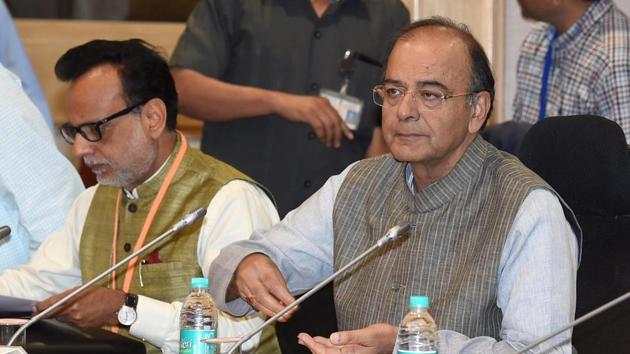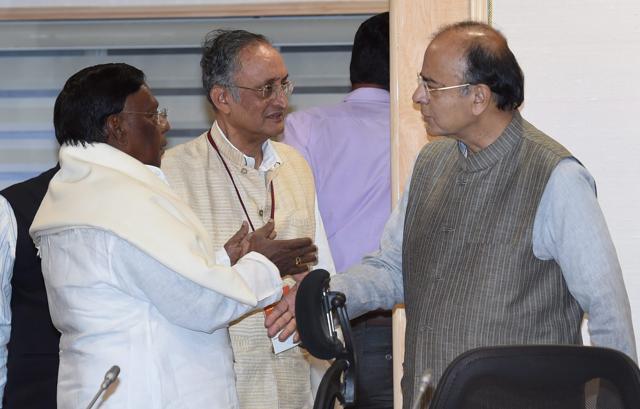GST may roll out from July as Centre, states approve draft bills
The GST council approved two remaining pieces of supporting legislation that will enable states and Union territories to introduce the GST, billed as India’s biggest tax reforms.
India moved a step closer to implement, possibly from July, the goods and services tax (GST) after the Centre and states buried differences on Thursday over two long-delayed proposed laws needed to create a uniform market in the country.

The GST council approved two remaining pieces of supporting legislation that will enable states and Union territories to introduce the GST, billed as India’s biggest tax reforms. The nod paved the way for introduction of these draft bills in Parliament and state legislatures.
“The supporting GST laws will now be taken to the cabinet and then to Parliament for approval,” finance minister Arun Jaitley said, announcing that the drafts of the state and Union territories GST bills were cleared at a meeting of the council that he heads.
The government hopes to implement the GST tentatively from July, said the minister.

Also, the council agreed on capping cess on demerit goods — so-called sin and luxury products — such as cigarettes, alcohol, colas and cars at 15%.
That means the total tax incidence on sweetened drinks and cars cannot be more than 43% — tax rate of 28% plus cess of 15%.
The proposal on paan masala is to levy a 135% duty on the value of the item. In case of cigarettes, the cess levied could be either 290% or Rs 4,170 for thousand sticks or a combination of both.
The Narendra Modi government has been able to bring all states on board, overcoming almost a decade of political differences on how to replace a multi-layered set of central and state taxes and levies with a unified nationwide GST.
The ruling BJP’s victories in the latest assembly elections, especially in Uttar Pradesh, are expected to spur the government to accelerate reforms and growth before the country heads for parliamentary polls in 2019.
The Centre and states agreed on March 4 on two draft laws needed to roll out the GST, a move that will likely make a range of services, including eating out and mobile internet, cheaper.
The GST council has already approved two draft bills, for central and integrated GST. These will be tabled in Parliament and go to the states for ratification.
The unified tax will have four slabs of 5%, 12%, 18% and 28%. Farmers and small traders are exempt.
After the March 4-5 meeting, Jaitley expressed confidence in sticking to the July target to implement the GST, which has missed several deadlines.
Successive governments have pushed to introduce the GST that will create a common market and help lower the tax burden, shore up government revenues, temper inflation and boost economic growth by at least two percentage points.
But the tax reforms hit hurdles because of a lack of consensus from the states and opposition in the Rajya Sabha, the Parliament’s Upper House where the Modi government doesn’t have the numbers to push through key bills.
Some states wanted a higher cap at 40% to obviate the need to go to Parliament every time taxes have to be raised on certain goods and services.
The GST legislation is likely to be taken up as money bills in Parliament this budget session, which restarted on March 9 after a month-long recess. The Rajya Sabha can’t reject money bills as it only has powers to make recommendations on such legislation, which the Lok Sabha can choose to accept or reject.
The passage of the bills will remove tax barriers, and subsume a host of indirect taxes levied by the Centre and the states, including excise, service, entertainment, entry, luxury and value-added taxes.
(With inputs from Remya Nair, Mint)





